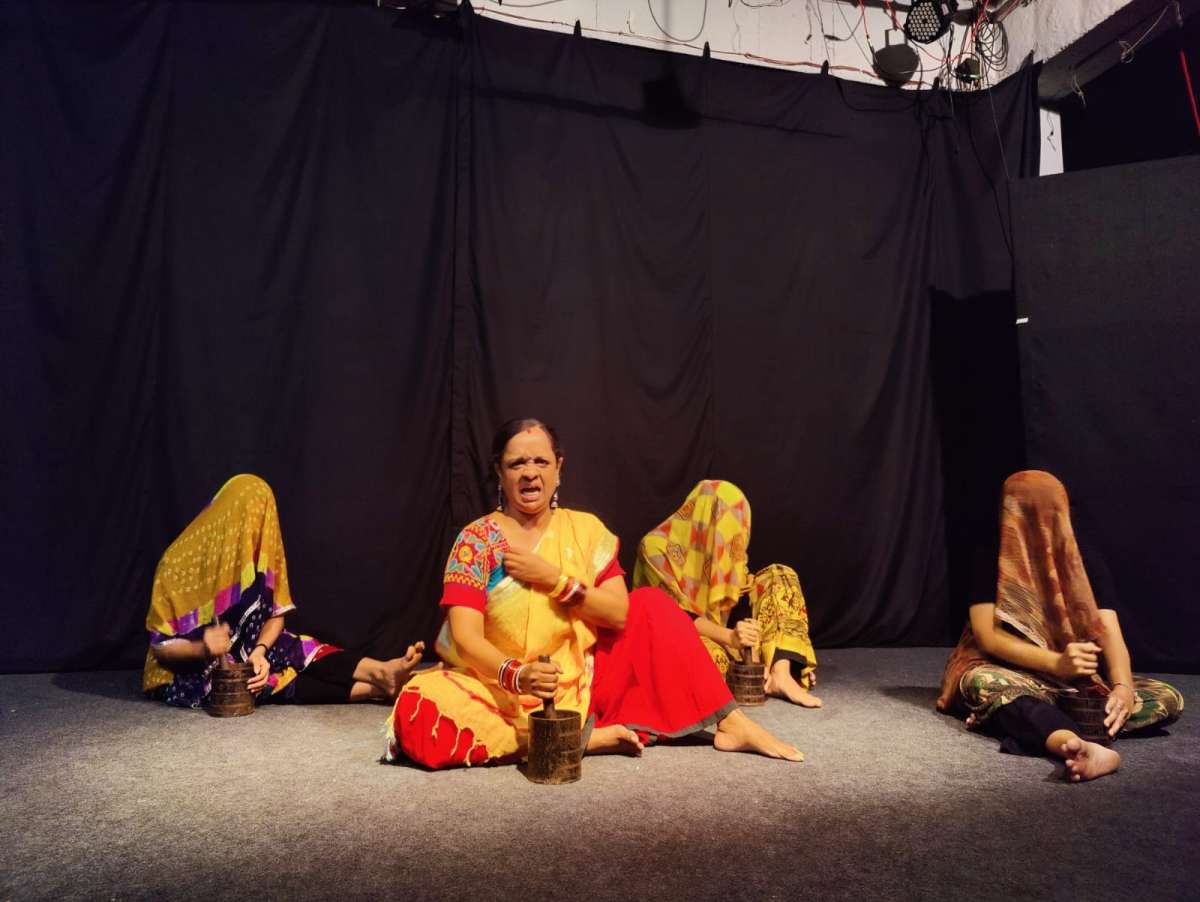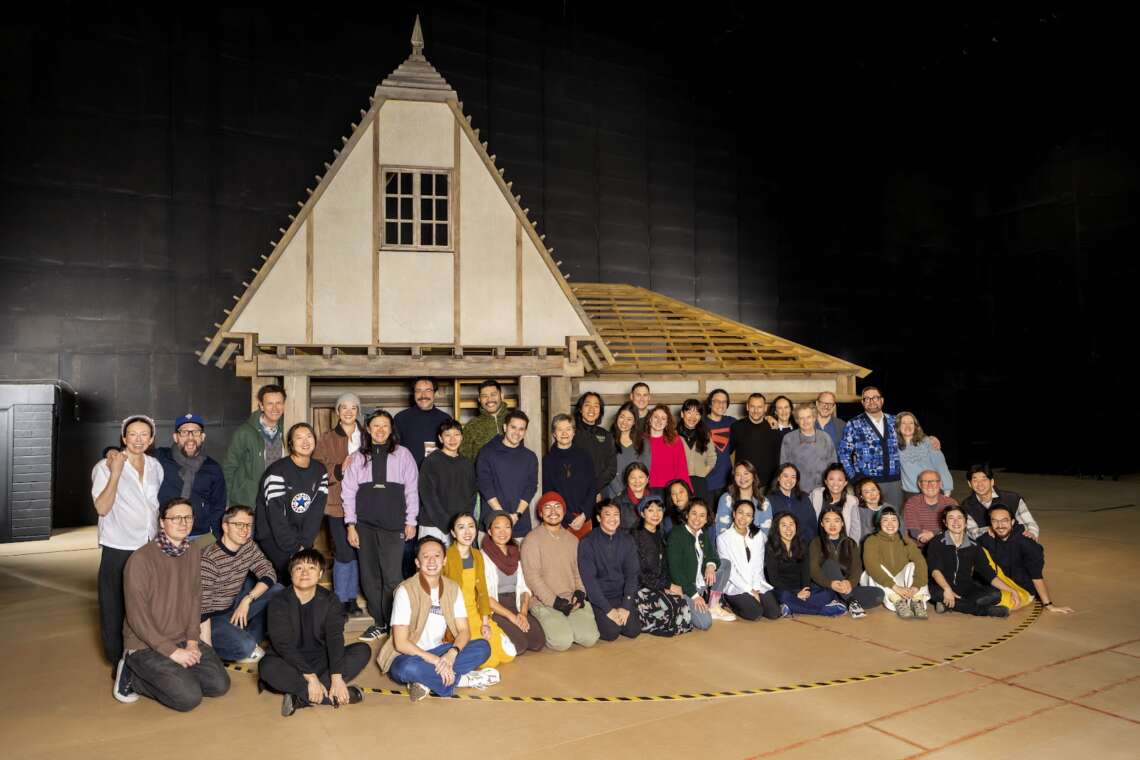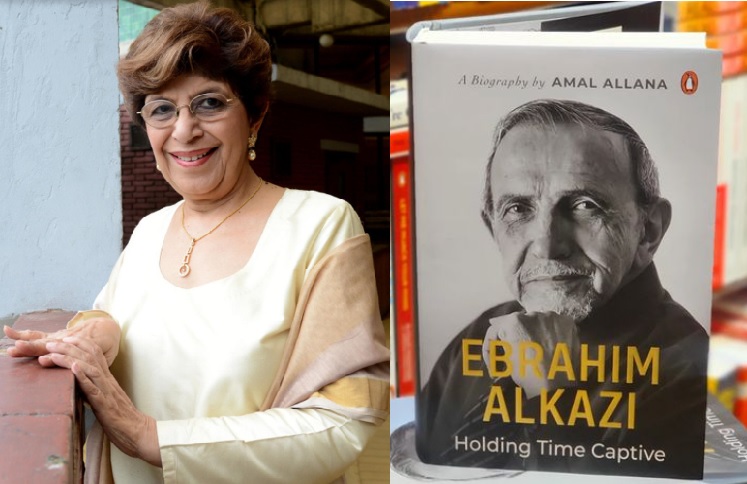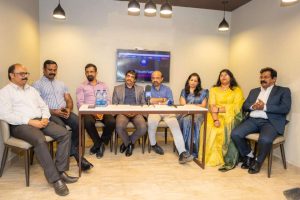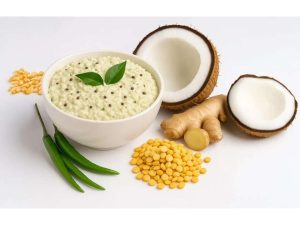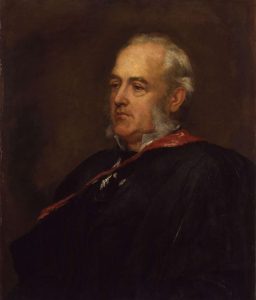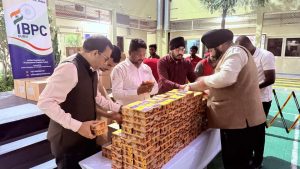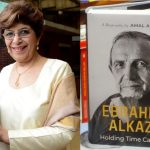Written by a young Gujarat-based writer Chaitali Das, the play opens up with a conversation around masturbation and why it’s alright if women want to experience desire and pleasure. A reference to a vibrator in a play in Gujarat – is worth noting…reports Janhvi Sonaiya
While Gujarat was battling with one of the worst cyclones this week, there was another wave too – this one was of feminism.
At the experimental theatre space Prayogshala in Ahmedabad, a bunch of young girls could be seen in loose black clothes, without makeup, dancing to Bollywood songs on unchoreographed steps – everything liberating that a woman would do in her room; they were doing it on stage.
In Gujarat, people cannot afford to take a stand – be it political or feminist, because no one wants to do anything that might disturb his/her dhandha, business. Here, ‘Voh Ladkiyon Wala Natak’ comes as a breath of fresh air. The all-woman, non-linear piece of theatre (rebellion actually) is centred around women and their take on love, lust, anger, frustration and various other emotions. This Gujarat-based production has also performed at Thespo Theatre Festival, Mumbai.
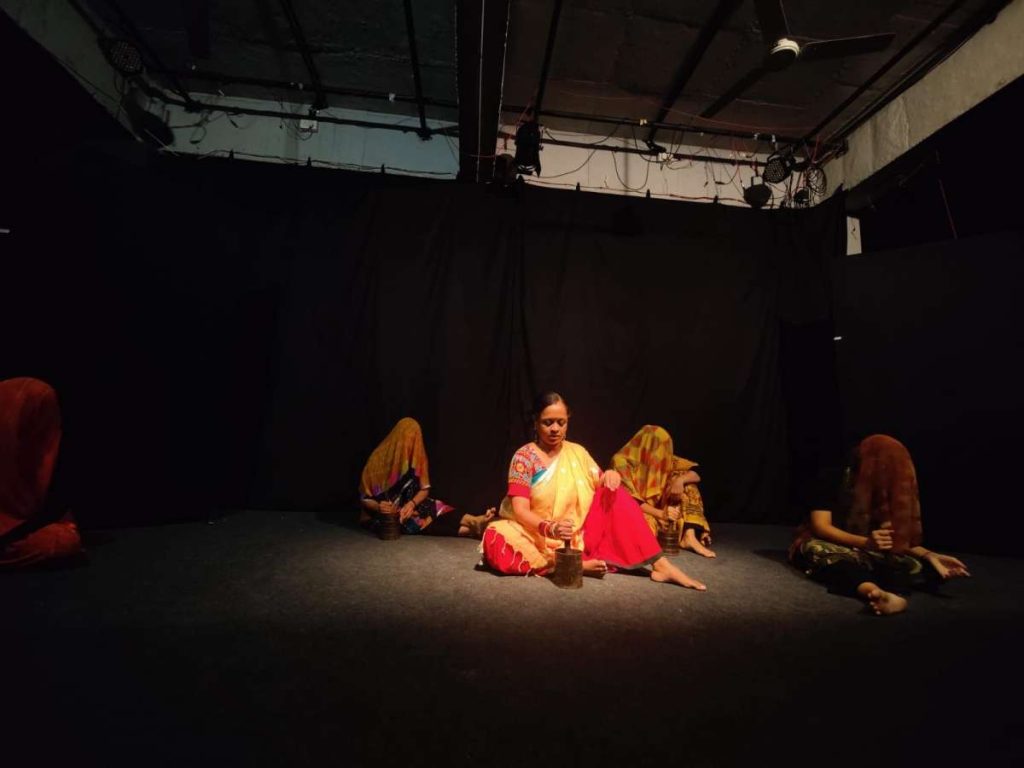
Written by a young Gujarat-based writer Chaitali Das, the play opens up with a conversation around masturbation and why it’s alright if women want to experience desire and pleasure. A reference to a vibrator in a play in Gujarat – is worth noting.
In another scene, a youngster Durga (a reference to the goddess) is seen fighting against Mahishasura but in the middle of the yuddha (war) — Durga gets a phone call from her family (Lord Shiva) about where the milk is? What’s the OTP? And who will bring their little Ganesha home? With humour, they address the glorification done around women and multitasking.
One of the leading characters in the play, Kamala, is played by Preeti Das. She is Laadli awardee journalist, now, an academician, who talks about feminism through comedy and theatre.
Das said, “These young girls were tired of the male narrative in theatre and in life in general and therefore, they came up with their side of the story.” Other team members include Teertha, Anannya, Aayushi, Neha, Lipi, Yashi, Kanksha, Chaitali, Snigdha and Paridhi.
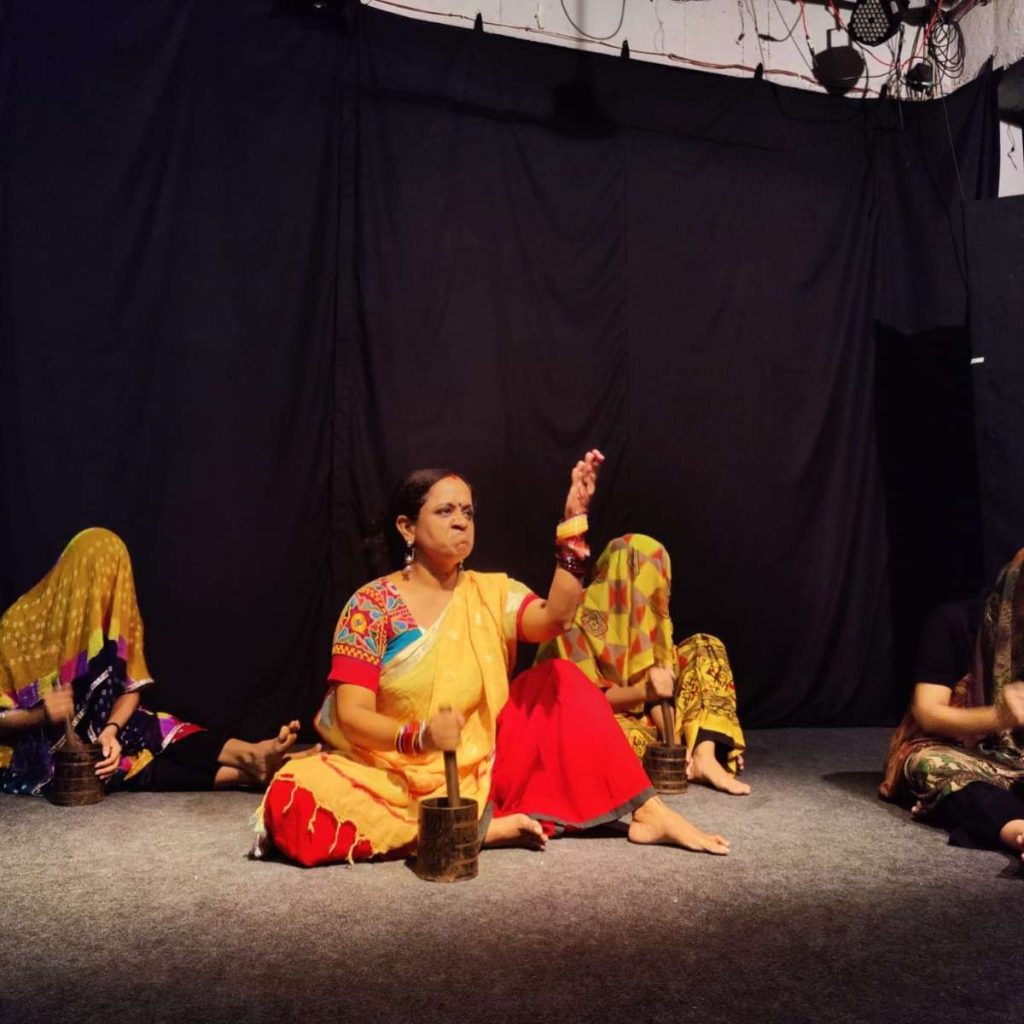
There are moments in the play where one could feel like they said out loud, what you have been feeling and experiencing as a woman for so long. After all, the idea of suppression is universal. At the end of the play, the women come together and talk and talk…and a character says “Ladkiya to sirf baate kar sakti hain, nahi!” (Women can only talk, right!?) With this, the houseful audience gave thundering applause.
The end brings more questions than answers. Can violence ever be called love? As a housewife, what is my purpose in this relationship? Is it alright if women don’t meet the beauty standards set for them?
The play gives the feel-good factor of breakfast, not the satisfaction of lunch. But the silver lining is, some at least scratched the surface in a state where everyone else is too scared of taking a stand – politically or otherwise.

